The Importance of Being Ernest Part 6: Ernest Goes to School (1994)
Know what I mean?
J0th, 1994 was a magical day for the good people of Cincinnati, Ohio and Louisville, Kentucky. No one could possibly have known at the time, other than anyone familiar with the series’ dwindling box-office grosses, that that fateful day would mark the very final time a fella would be able to say to his gal, “What say you and me have a kissing date in the balcony of the theater showing the newest Ernest P. Worrell movie? I’ll buy popcorn and soda and we’ll smooch up a storm!” without coming off like a lunatic.
Do you think the folks in attendance at those magical final showings had any idea how lucky they were? Could they possibly have grasped the historic importance of their actions?
The rest of the world wouldn’t get to experience Ernest Goes to School until December 14th of the same year, when the Jim Varney vehicle was dumped onto home video.
Ernest Goes to School would be the last Ernest movie to receive even the most modest of theatrical releases. The last three Ernest movies, Slam Dunk Ernest, Ernest Joins the Army and Ernest Goes to Africa would go direct to video.
Some say our nation, built as it was upon the wholesome twin pillars of slavery and the genocide of indigenous people, lost its innocence when JFK was assassinated. Others argue that happened on 9/11. I would definitively state that our nation truly lost its innocence when some sick, power-mad fuck decided that Jim Varney portraying the role of good-natured bumpkin Ernest P. Worrell somehow did not merit at the very least a robust theatrical release with a healthy advertising campaign and worldwide promotional tour.
Some say Jim Varney died from Lung Cancer after decades as a heavy smoker. I say he died of a broken heart after his beloved public, which he only wanted to entertain, turned their back on him by refusing to support his movies with their money and passion.
Rumor has it Varney’s final words were a heartbroken “Why hath forsaken me?” delivered to moviegoers who had turned into movie non-goers somewhere around Ernest Rides Again.
But before Ernest became a purely direct-to-video phenomenon he put out a movie that might as well have skipped the theaters entirely in 1994’s Ernest Goes to School.
The oddly engaging mash-up of Flowers for Algernon and Billy Madison finds Varney’s denim-clad practitioner of the janitorial arts toiling happily as a fix-it man at Chickasaw Falls High School, home of the Fighting Muskrats.
An evil superintendent wants to find an excuse to shut the school down so that it can be consolidated with a nearby school so he seizes upon a rule dictating that all employees must be high school graduates or face termination.
Throughout the Ernest franchise there are moments when the bumbling hero talks like an idiot-savant whose doltish persona masks a streak of grandiosity and verbosity. In Ernest Goes to Camp, for example, Ernest takes forever to do a math problem yet exhibits an exhaustive knowledge of growing conditions for citrus in the American South. And when he’s threatened with termination if he doesn’t get his diploma Ernest turns into a human dictionary and rattles off a bunch of synonyms for getting fired.
In Ernest Rides Again Ernest tells a buddy amazed that he survived a pratfall that the key to his seeming immortality lie in being pretty much a cartoon character. Like a cartoon character, Ernest’s intelligence is elastic. He can be as smart or as stupid as any scene needs him to be.
That’s particularly true of Ernest Goes to School, where the entire plot hinges on his intelligence and sophistication fluctuating wildly from one moment to the next.
Ernest is worried about losing his job so he re-enrolls in high school as an adult. On his first day he doesn’t know what to do or where to go until the crowd dissipates, leaving only a Clint Eastwood-like cowboy on a horse who tells him where to go and also that he needs a hall pass.
We never see this horseman again. He serves no purpose within the narrative. It’s just the kind of weird, borderline avant-garde gag you see even in lesser Ernest movies.
Varney’s post-Touchstone output shares with his Disney Golden Age a fantastical conception of the material world as being in violent conflict with Ernest. In early physical comedy set-piece, Ernest’s earnest attempts to fix faucets and doohickeys and whatnot invariably leads to inanimate objects rising up again Ernest with great anger as they try to take the poor man’s life.
Ernest’s attempts to fit in at school are at first a distinct failure. A bully pulls the old “setting the new guy’s hat on fire” gag. An embarrassed Ernest accidentally steps hard on a comically oversized tube of glue that splatters all over his teacher’s body in a way that makes it look like an elephant has just ejaculated lustily on his torso.
The universe has it in for Ernest. Bullies bully him. Snooty superintendents try to get him fired. Machines are perpetually trying to kill him. Critics don’t understand him or his genius. Neither do intellectuals. Disney gave him the old heave ho.
The man could use a break. He gets one when a pair of mad scientists who inexplicably operate out of a locker at the school use him as a guinea pig to test a new machine to make people smarter.
In a Charly-like development that did not, sadly, result in a Charly-like Academy Award for Best Actor for Varney, the machine works like gangbusters. The simple man goes from zero to intellectual hero, from lowbrow to highbrow, from slob to snob, from good-natured goober to human super-computer.
The transformation is visual as well as intellectual. He inexplicably starts wearing glasses as well as a tie and a dress shirt instead of his signature grey tee. They never explain WHY Ernest suddenly needs glasses but he’s now not just smart but super smart and smart people all wear glasses. At least all the Poindexters do.
The Smart Ernest is a bit of an insufferable know it all. He’s a William F. Buckley type intellectual who broadcasts his superiority over simple folk in a most non-Ernest fashion.
He is a genius with an Einstein-level intellect who can play every instrument and has an encyclopedic knowledge of the works of John Philip Sousa.
This comes in handy, because the pre-transformation Ernest developed a schoolboy crush, or rather a school-man crush on Ms. Flugal (Corrine Koslo), his music teacher.
Ernest Goes to School flies in the face of convention in giving Ernest a love interest who is completely average-looking, a plain church secretary type in dowdy cardigans and high-collared shirts.
I’m so used to every female love interest being, at the very least, extremely attractive, that it is legitimately a little jarring to see Varney partnered with someone who looks like a regular person and not an actress.
The mad scientists are overjoyed with their patient’s progress. When he asks if the brain-juicing machine will help him pass a math test, a scientist giddily quips, “Pass a test? Try rewriting the Theory of Relativity!” to which he earnestly insists, “Well, if you think it really needs it!”
The line and Varney’s aw-shucks delivery are both hilarious, as is the idea of Super-Smart Earnest re-writing the Theory of Relativity in order to improve it.
Ernest Goes to School’s idiot plot involves the super-smart Ernest helping save the school by transforming its football team into champions and its marching band into virtuosos.
It is established repeatedly that the school’s salvation lies in athletic victory, not in anything as nerdy or irrelevant as education or community service. No, it all comes down to winning the big game and pulling off a knockout halftime show.
The intelligence machine only makes Ernest brilliant for limited amounts of time. Then he goes back to being a dumbass. He’s Dr. Jeckyll and Mr. Hillbilly, with a tendency to begin activities as the smartest version of himself, only to revert to his goofball self at the worst moment.
In Educated Sophisticate mode, for example, Ernest tells the band he has been leading with supreme confidence to look at him and follow his lead if they’re confused or need direction.
This inevitably leads to catastrophe when things get all screwy and Ernest ends up with his head inside a tuba, greatly constricting both his vision and his range of movement. The band obliviously mimics Ernest’s every blunder and misstep as instructed in flagrant violation of common sense and solid judgment.
Watching the high school band members make idiots of themselves in imitation of Ernest engendered a sort of guilty double laughter for me. I laughed at how stupid and groaningly predictable the gag is but I also laughed at myself for being stupid enough to find something like that laugh out loud funny.
I don’t want to be overly critical, but if I were one of those YouTubers who perform an invaluable service in scrupulously documenting every single way in which a silly Hollywood movie is not EXACTLY like real life I could spend four or five hours pointing out the implausibilities of the climactic football game.
For starters, I’m pretty sure you’re not allowed to play wearing only a denim vest and baseball hat for protection. And a play called “The Cupid” where a pretty girl on one team tricks a member of the other team into falling in love with her solely so that he will give her the football during game-time as a token of his infatuation seems like it would violate at least eight or nine different rules.
I never thought I would write these words, dear reader, but the Ernest movie I just watched and am writing a 1700 word essay about was actually pretty stupid but I chuckled a fair amount and enjoyed the ridiculousness of the whole affair, as well as its casual surrealism.
I enjoy the character so even when he’s not in peak form I still end up having fun.
Will that hold true of Slam Dunk Ernest? I honestly have no idea. It’s the only Ernest movie I’ve seen I remember flat-out disliking but I’m a lot more pro-Ernest these days so it’ll be interesting if it will frustrate and appall me a second time or if it will join all of the others as movies I have a distinct fondness for, regardless of their quality or lack thereof.


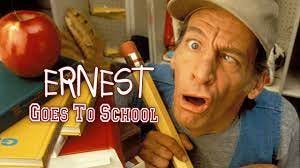
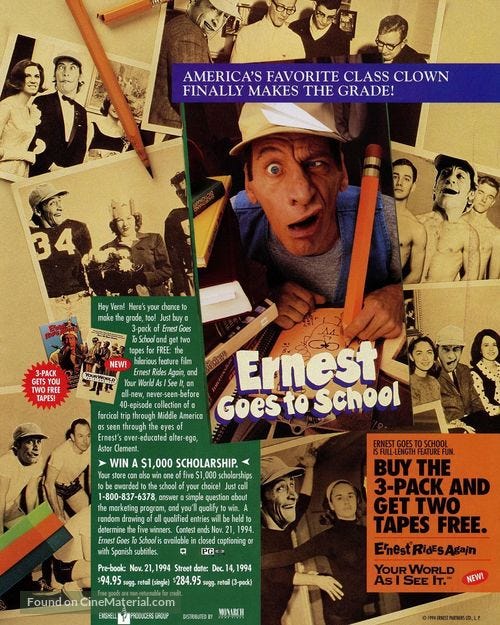
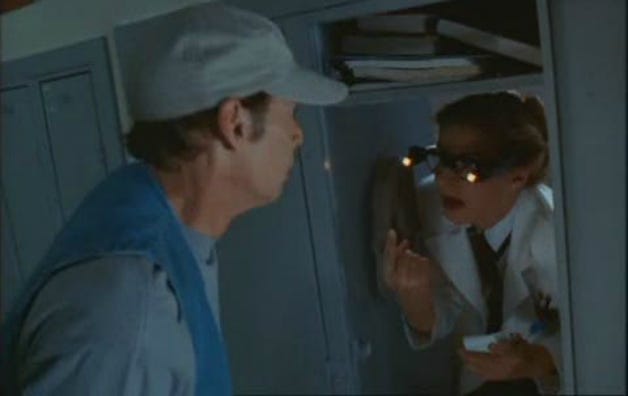
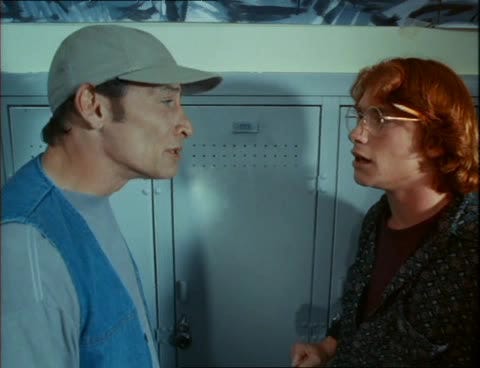
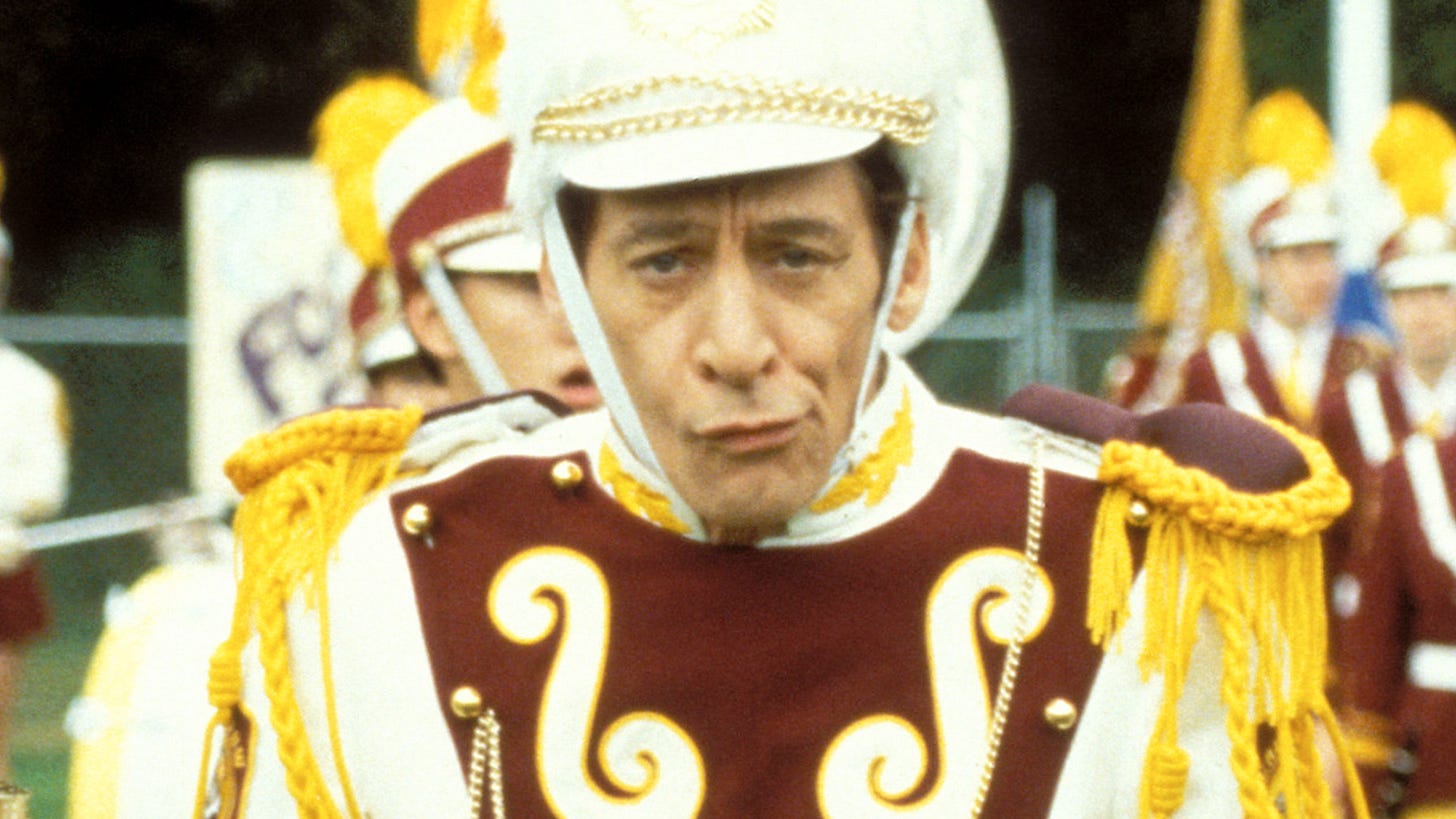
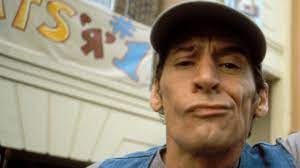
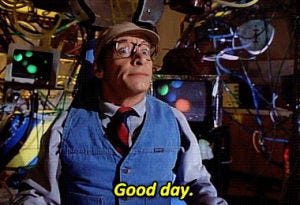
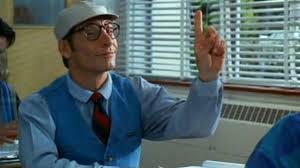
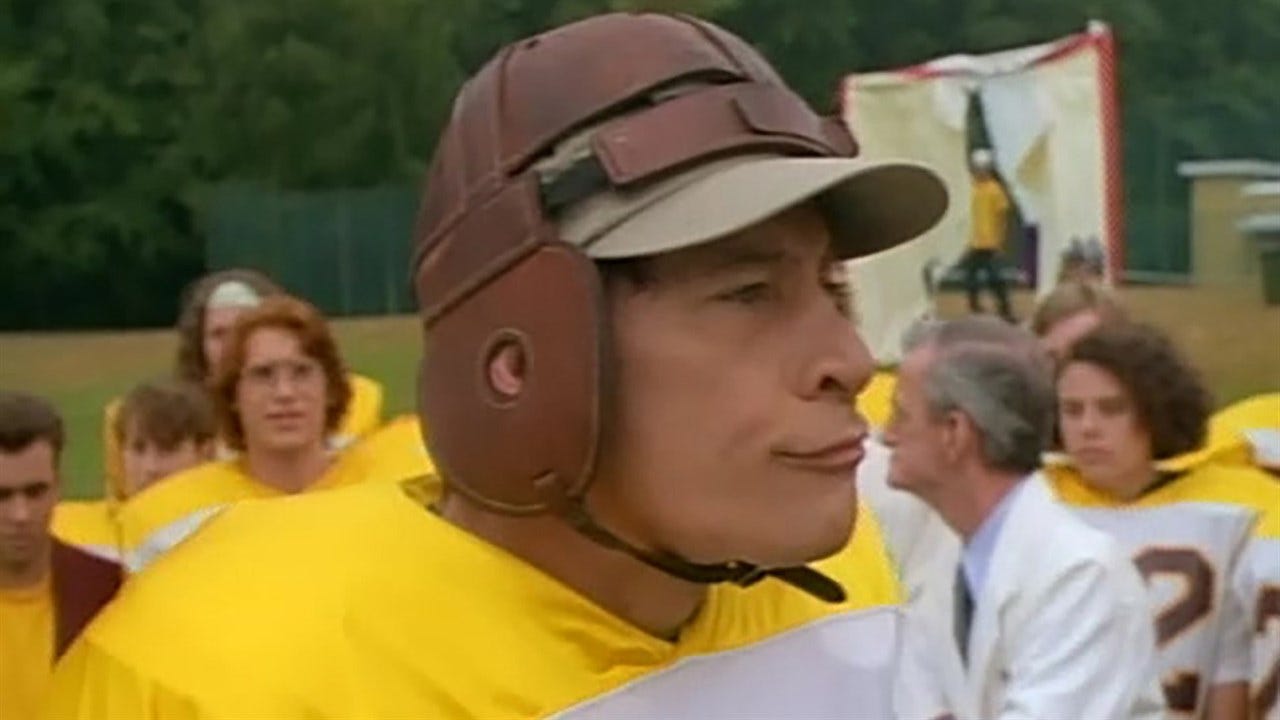
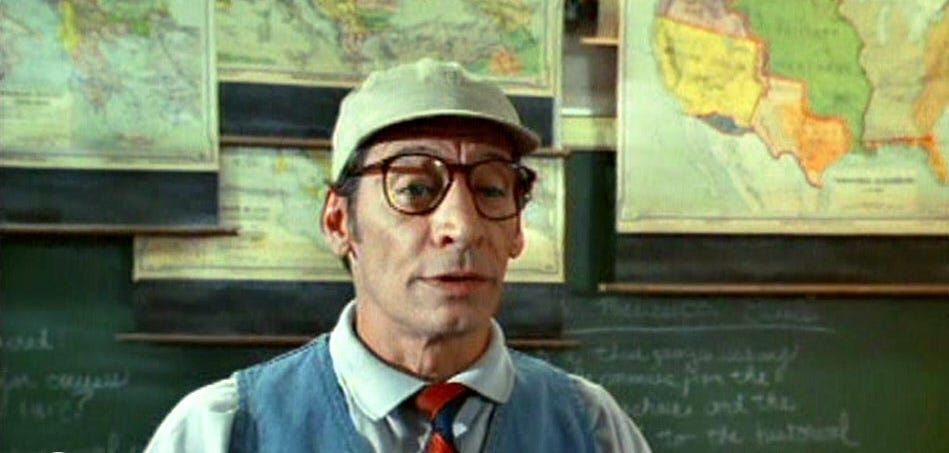
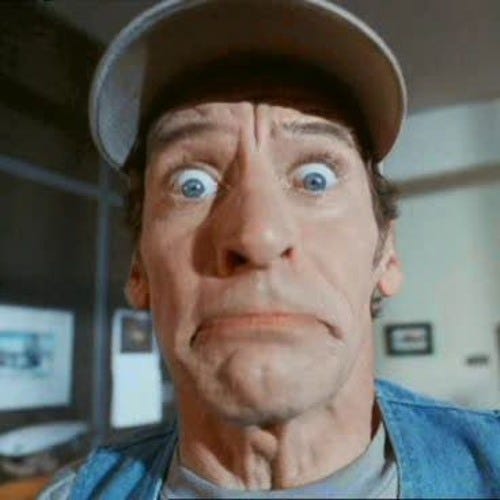
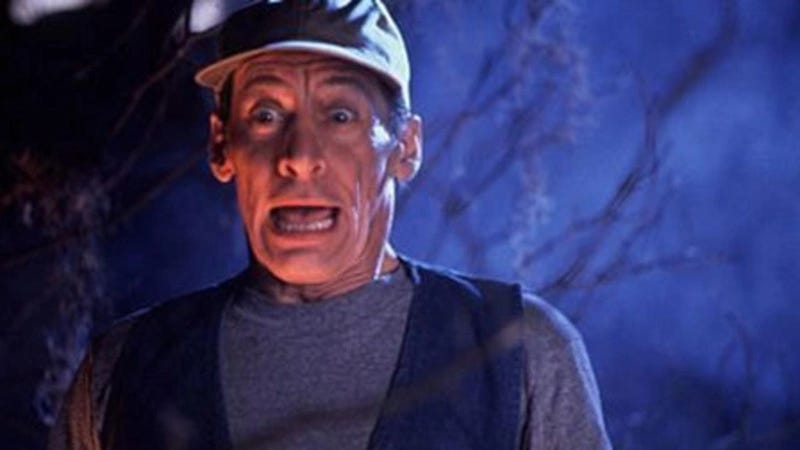
I have never seen any of these films. I KNOW! I bought a 3-pack on DVD recently, I aim to correct this grievous oversight sooner rather than later.
Is the humor at all similar to "Beavis & Butthead"? You have to be pretty smart to write a dumb character in a truly hilarious way. Also, I found the many of the most memorable moments from that show involved Beavis stumbling upon some legitimately insightful viewpoint.